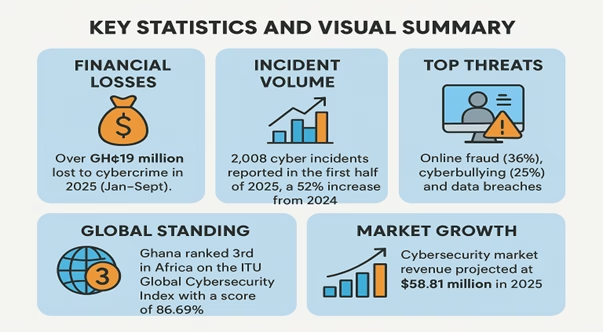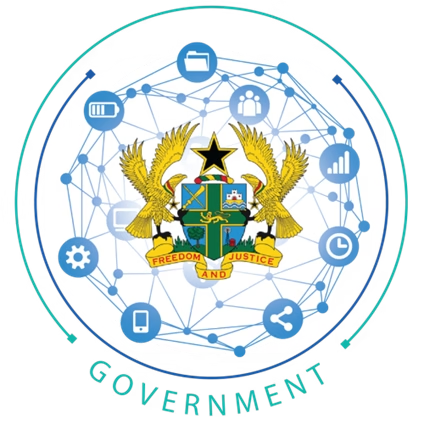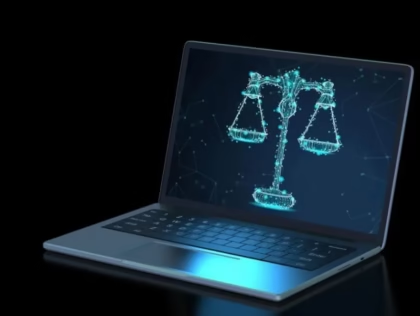Abstract
The Cybersecurity Amendment Bill 2025 represents a pivotal legislative effort to modernize Ghana’s digital security framework. With cybercrime losses in Ghana exceeding GH¢19 million in the first nine months of 2025 and a 52% increase in reported cyber incidents, the need for stronger legal and institutional responses is evident. The bill proposes enhanced powers for the Cyber Security Authority (CSA), including investigative authority akin to law enforcement, stricter penalties for cyber offenses, and measures to protect vulnerable groups online. However, critics argue that ambiguous language and broad enforcement powers could threaten freedom of expression, privacy, and digital rights. This article examines the bill’s key provisions, analyzes its implications for national security and civil liberties, and calls for transparent, inclusive reforms to ensure a balanced and rights-respecting cybersecurity framework in Ghana.
Introduction
The Ghana Cybersecurity Amendment Bill 2025 aims to strengthen national cybersecurity by addressing rising cyber threats, expanding enforcement powers, and improving digital infrastructure. However, it has sparked debate over the balance between national security and digital rights. The bill seeks to amend the Cybersecurity Act, 2020 (Act 1038), to respond to evolving cyber risks such as online fraud, misinformation, and data breaches, while also raising concerns about potential overreach and suppression of free expression.
Key Statistics and Visual Summary
To enhance understanding, the following data highlights the urgency behind the bill’s amendment

Comprehensive Review on the Key Legal, Technical & Regional Issues
- Legal Perspective:
- Data Privacy and Human Rights Protections:
While the bill empowers law enforcement with warrants and investigative powers (Sections 59F, 59G), explicit safeguards to prevent abuse such as standards for judicial oversight, notification rights, and limits on surveillance are crucial to protect citizens’ privacy and human rights. The bill should clearly delineate these safeguards to prevent overreach and ensure compliance with international human rights instruments.
- Liability and Due Diligence for Service Providers:
The bill emphasizes licensing and accreditation but should clarify the due diligence obligations of cybersecurity service providers and operators of critical infrastructure, including provisions for breach notification, incident reporting timelines, and clear accountability frameworks to prevent negligent practices.
- Legal Harmonization and International Cooperation:
Amendments related to extradition (Section 99) highlight cross-border cooperation. The act should specify procedures for mutual legal assistance, harmonization of cybersecurity laws with regional and international treaties, and mechanisms to address conflicting jurisdictional issues, especially considering the diverse legal frameworks in Africa.
- Clarity in Administrative Penalties and Enforcement:
The bill introduces substantial administrative penalties (Section 36, Second Schedule). It is necessary to specify clear, consistent, and proportionate penalty frameworks to avoid ambiguity, legal disputes, or disproportionate sanctions that could be challenged in courts.
- Technical Perspective:
- Standards and Certifications for Emerging Technologies:
The bill’s provisions for certification of emerging technologies and cyber hygiene (Sections 58A, 57B) should be backed by internationally recognized standards (e.g., ISO/IEC 27001). Establishing technical criteria and periodic auditing processes will ensure credibility and effectiveness.
- Incident Detection and Response Infrastructure:
The mechanisms for cybersecurity incident reporting (Section 47) and the powers of sectoral teams need robust technical infrastructure, including real-time monitoring, threat intelligence sharing, and automated incident response systems.
- Capacity for Quantum and AI Technologies:
The mention of quantum computing (Section 59) highlights the need for the government to develop technical expertise in quantum-safe encryption and AI security. This entails investing in research, training cybersecurity professionals, and adopting international best practices to counter emerging threats.
- Cybersecurity Workforce Development:
The bill should include provisions for ongoing training, certifications, and knowledge sharing to keep pace with rapidly evolving technical landscapes
- African Perspective
- Regional Cooperation and Data Sovereignty:
The bill’s references to extradition and cross-border cooperation (Section 99) must be contextualized within African integration efforts, such as the African Union’s Cybersecurity Strategy. Strengthening regional cooperation frameworks like the African Cybersecurity Convention should complement this bill.
- Addressing the Digital Divide:
The effectiveness of cybersecurity laws depends on widespread awareness and access. The government should ensure that capacity-building initiatives extend to smaller businesses and underserved communities to bridge the digital divide a key regional challenge.
- Balancing Security and Development Goals:
Lawmakers need to strike a balance between security measures and fostering digital innovation. Overly restrictive laws could hamper economic growth, including the burgeoning African tech ecosystem, which requires flexible legal frameworks for innovation like blockchain and AI.
Key areas to enhance national cybersecurity effectively
Based on the provisions of the Cybersecurity Amendment Bill, 2025, the government should focus on several key areas to enhance national cybersecurity effectively:
- Effective Implementation and Enforcement:
The bill grants extensive enforcement powers, including licensing, accreditation, and administrative penalties (Sections 57, 57A, 59A). The government should ensure that these enforcement mechanisms are operationally effective, with clear standards, timely actions, and adequate resources to penalize non-compliance and deter cyber threats.
- Public-Private Collaboration:
The establishment of accreditation and certification schemes (Sections 57B, 58B,) highlight the importance of standards in cybersecurity practices. The government should facilitate partnerships and maintain a transparent framework to encourage private sector participation, thereby elevating overall cybersecurity resilience.
- Capacity Building and Certification:
The bill emphasizes the accreditation of cybersecurity professionals and practitioners (Section 57). The government should invest in training and certification programs, ensuring a pool of qualified professionals capable of implementing security measures and responding to incidents effectively.
- Critical Information Infrastructure Oversight:
The process of designating, registering, and withdrawing critical information infrastructures (Sections, 36, 37) requires robust data management and continuous monitoring. The government should develop a streamlined, transparent process for these designations and ensure compliance across sectors.
- Legal and Judicial Preparedness:
The bill’s provisions for warrants (Section 59G) and court involvement necessitate judicial training on cybersecurity issues. The government should prepare the judiciary to handle complex cyber-related cases swiftly and knowledgeably.
- Privacy and Data Protection Balance:
While the bill permits data access for investigations, measures ensuring privacy are also emphasized (Section 59G). The government should develop clear data handling protocols to balance security needs with individual rights, fostering public trust.
- Continuous Review and Adaptation:
Cyber threats evolve rapidly. The government should establish regular review mechanisms for the bill’s provisions, updating frameworks and policies to align with emerging technologies like AI and blockchain (Sections 59, 58A).
Conclusion
In conclusion, the Ghana Cybersecurity Amendment Bill 2025 presents a critical opportunity to enhance national cybersecurity while safeguarding digital rights. To build a resilient cybersecurity ecosystem, the government must prioritize operationalizing enforcement with clear, transparent guidelines and foster robust collaboration with the private sector. Capacity building is essential to develop technical expertise and infrastructure that can effectively counter evolving cyber threats. Legally, the act should explicitly safeguard privacy, ensure due process, clarify liability provisions, and align with international standards to avoid ambiguity that could lead to misuse or infringement on civil liberties. Technically, adopting clear standards and investing in emerging technologies will strengthen Ghana’s cyber defences. Regionally, the bill should promote African integration and cooperation to address shared challenges like digital inclusion and infrastructure gaps. Continuous stakeholder engagement, public transparency, and regular review will be vital to ensure the legislation remains balanced, relevant, and effective in addressing both security needs and the protection of fundamental digital freedoms. This comprehensive approach will position Ghana as a cybersecurity leader in the region while respecting the rights and freedoms of its citizens.
References
Cyber Security Authority Ghana. Public Consultation on the Draft Cybersecurity (Amendment) Bill, 2025. Available at www.csa.gov.gh [Accessed October 2025].
Statista. “Cybersecurity Market Revenue Forecast for Ghana, 2025.
International Telecommunication Union (ITU). Global Cybersecurity Index – Ghana Ranking.
Author: Abraham Selby | Researcher & Information Security Advocate | Member, IIPGH
For comments, email selby@abrahamselby.com





